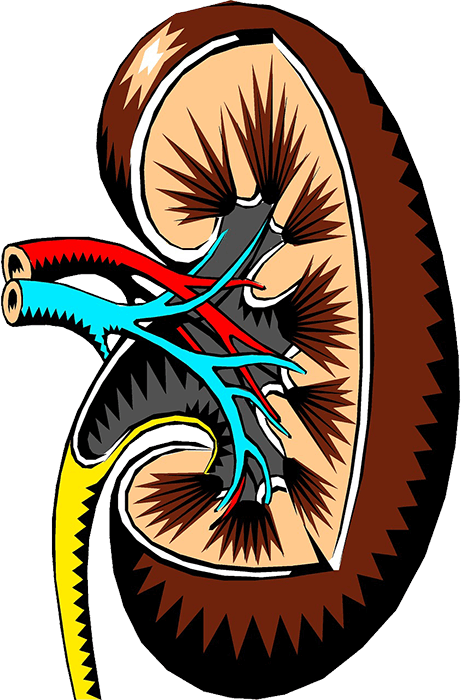What is Nephrology?
Nephrology (from the Greek nephros, meaning “kidney”, combined with the suffix -logia, meaning “study of”) is a medical specialty that deals with the kidney and its clinical, morphological and pathophysiological study. Our clinic dedicated to kidney health is where you can find a nephrologist in Dubai that can help with kidney disease, chronic kidney disease, acute kidney injury, kidney failure, kidney stones and many other kidney diseases including renal disease.

CHRONIC KIDNEY DISEASE
About one in ten people worldwide is affected by chronic kidney disease (CKD) with over 2 million people globally receiving either dialysis treatment having benefited from a kidney transplant. It is estimated that 1.5 billion people will be living with kidney disease by 2050.
Chronic kidney disease (CKD) is a condition in which the kidneys are damaged and cannot filter blood effectively. This can lead to a build-up of waste products and fluids in the body, which can cause a range of health problems.
CKD is typically a long-term condition that progresses slowly over months or years. It can be caused by a variety of factors, including hypertension, diabetes, and certain medications. It is often asymptomatic in its early stages, so it is important to get regular check-ups and screenings to detect it early on.
As CKD progresses, it can lead to more serious health problems, such as anemia, bone disease, nerve damage, and impaired immune function. In advanced stages, it may require treatment with medications, lifestyle changes, and in some cases, dialysis or a kidney transplant.
It is important to manage any underlying conditions that may contribute to CKD, such as controlling blood sugar levels in people with diabetes and managing blood pressure. Making healthy lifestyle choices, such as maintaining a healthy diet and exercising regularly, can also help slow the progression of CKD.
OUR NEPHROLOGY
KIDNEY SPECIALISTS
- All
- Nephrology
Kidney Health is Important
The kidneys are important organs in the body that perform a number of vital functions. They are located on either side of the spine, just below the ribcage, and are responsible for filtering waste products from the blood and eliminating them from the body through urine.
The kidneys also help to regulate the balance of electrolytes in the body, such as sodium, potassium, and calcium, and they produce hormones that help to regulate blood pressure and the production of red blood cells.
Maintaining good kidney health is important because the kidneys play a crucial role in maintaining overall health and well-being. When the kidneys are not functioning properly, waste products and excess fluids can build up in the body, leading to a range of health problems.
Kidney disease can also lead to other serious health problems, such as anemia, nerve damage, impaired immune function or worse.
To maintain good kidney health, it is important to make healthy lifestyle choices, such as eating a healthy diet, staying hydrated, exercising regularly, and managing any underlying conditions that may contribute to kidney disease, such as hypertension and diabetes. Getting regular check-ups and screenings can also help to detect kidney problems early on, allowing for timely treatment and management.

Monitoring Your Kidney Health
Kidney diseases are often silent and arrive late to the nephrologist, it is highly advised to visit a nephrologist or kidney specialist if you experience one or more of the following symptoms:
Constant fatigue and low energy
High blood pressure
Loss of appetite, nausea, unpleasant breath
Sleep disturbances: sleep apnea and difficulty falling asleep
Itching and dryness of the skin
Continuous urge to urinate, especially at night
Presence of blood in the urine
Foamy urine
Swelling of the feet and ankles
Muscle cramps
OUR TEAM CAN HELP WITH MANY CONDITIONS INCLUDING:
-
Acid-base imbalances and electrolytes disorders
-
ADPKD: Polycystic kidneys diseases
-
Autoimmune diseases include autoimmune vasculitis, lupus, etc.
-
Effects of diseases like diabetes and high blood pressure on kidneys
-
Glomerular disorders
-
Kidney and urinary tract infections
-
Kidney stones
-
Metabolic disorders such as gout and hyperuricemia
-
Mineral bone diseases, such as Osteopenia and Osteoporosis
-
Nephrotic syndrome and nephritis
-
Preparing patients in end-stage renal disease for a kidney transplant and following them after the transplantation surgery
-
Prevention of malnutrition and muscular hypotrophy in dialyzed patients
-
Primary and Secondary high blood pressure diagnosis and treatment
-
Renal consequences from obesity
-
Renal injury (failure) that can be sudden or acute or chronic (long term)
-
Secondary effects of drugs and toxins on the kidneys
-
Urine abnormalities include excess excretion of protein, sugar, blood, casts, crystals, etc.
REQUEST AN APPOINTMENT
A member of our team will reach out to you & quickly get you booked in for an appointment with the most relevant member of our nephrology team.
PARTNERING WITH LEADING
MEDICAL INSURANCE PROVIDERS
We work with leading medical insurance providers in the country, if you have any questions or queries just give us a call on 8008254268.














